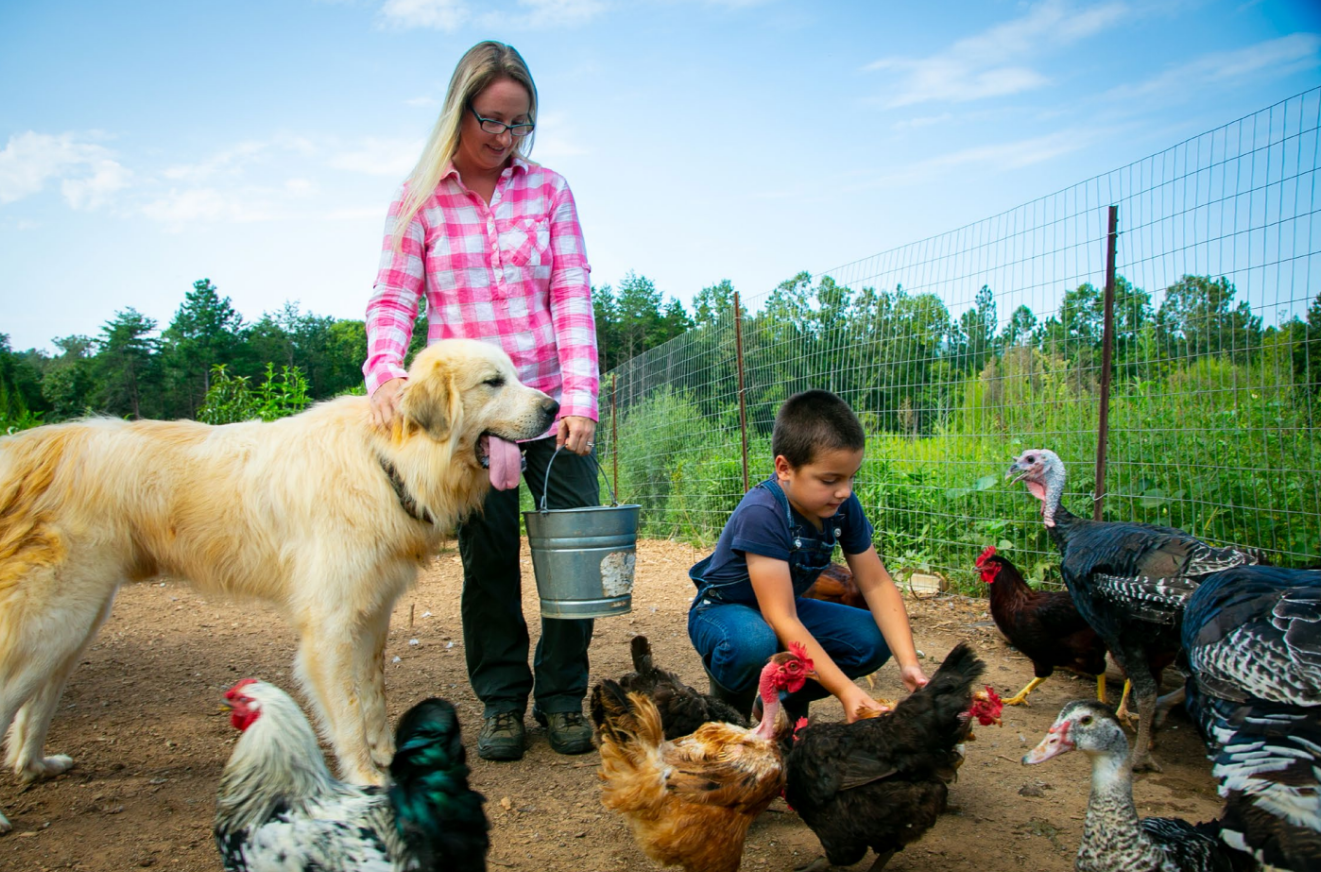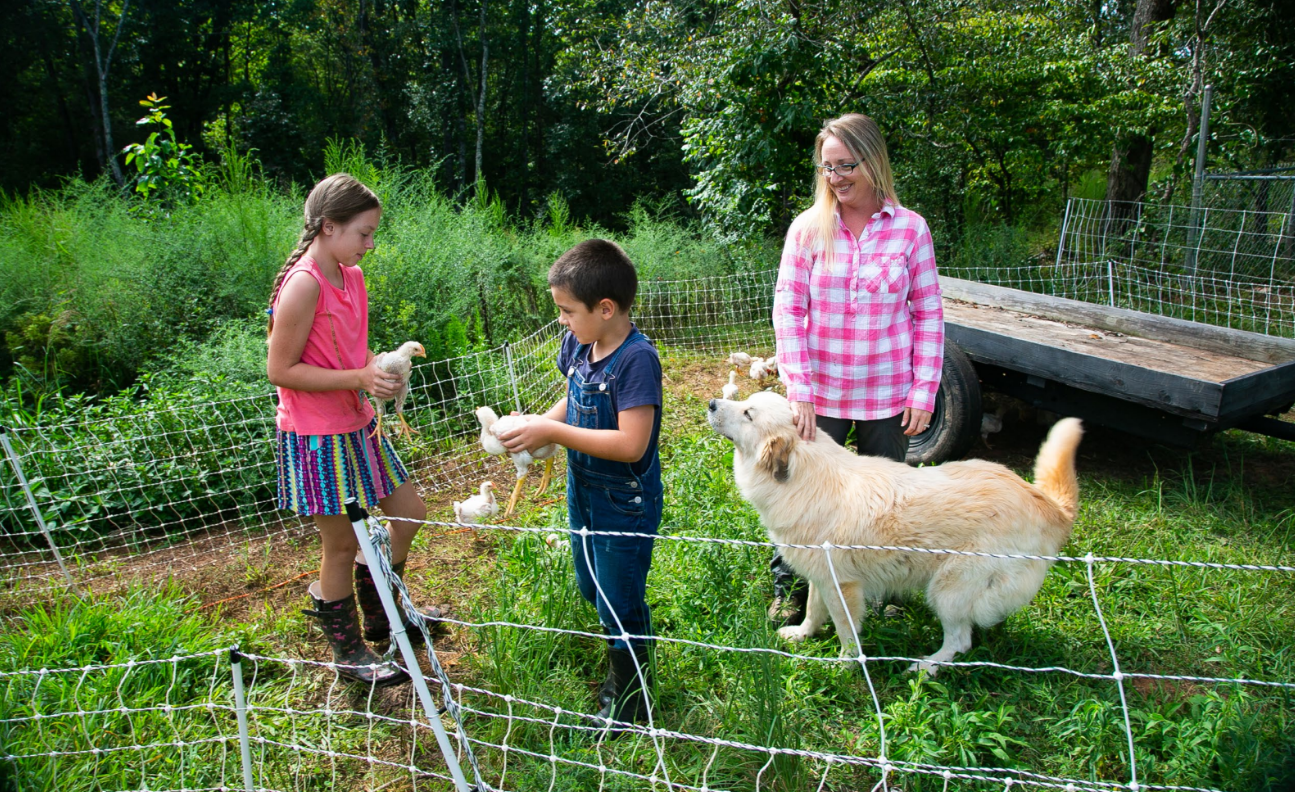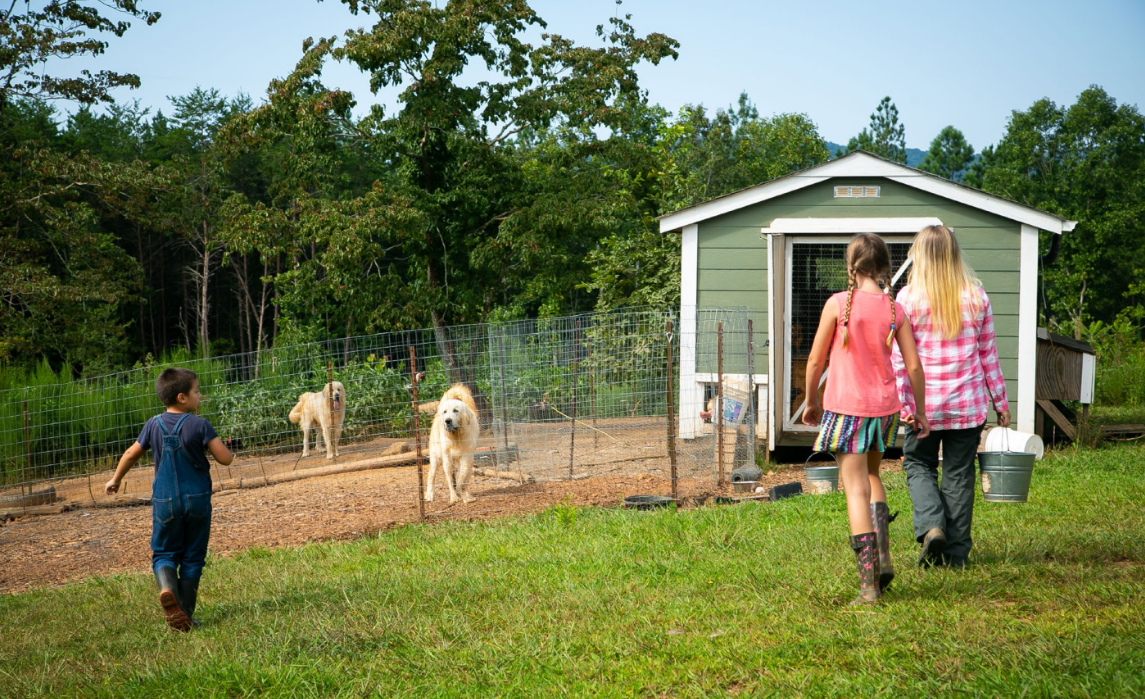Farming as a Young Family – NC Farm School Stories
go.ncsu.edu/readext?970238
en Español / em Português
El inglés es el idioma de control de esta página. En la medida en que haya algún conflicto entre la traducción al inglés y la traducción, el inglés prevalece.
Al hacer clic en el enlace de traducción se activa un servicio de traducción gratuito para convertir la página al español. Al igual que con cualquier traducción por Internet, la conversión no es sensible al contexto y puede que no traduzca el texto en su significado original. NC State Extension no garantiza la exactitud del texto traducido. Por favor, tenga en cuenta que algunas aplicaciones y/o servicios pueden no funcionar como se espera cuando se traducen.
Português
Inglês é o idioma de controle desta página. Na medida que haja algum conflito entre o texto original em Inglês e a tradução, o Inglês prevalece.
Ao clicar no link de tradução, um serviço gratuito de tradução será ativado para converter a página para o Português. Como em qualquer tradução pela internet, a conversão não é sensivel ao contexto e pode não ocorrer a tradução para o significado orginal. O serviço de Extensão da Carolina do Norte (NC State Extension) não garante a exatidão do texto traduzido. Por favor, observe que algumas funções ou serviços podem não funcionar como esperado após a tradução.
English
English is the controlling language of this page. To the extent there is any conflict between the English text and the translation, English controls.
Clicking on the translation link activates a free translation service to convert the page to Spanish. As with any Internet translation, the conversion is not context-sensitive and may not translate the text to its original meaning. NC State Extension does not guarantee the accuracy of the translated text. Please note that some applications and/or services may not function as expected when translated.
Collapse ▲At the edge of the Appalachian Mountains far from the bustle of urban life, Jen Butler and her family have carved out a hidden holler, Hidden Holler Farm. However hidden as it may seem, when visitors work their way down the long driveway, curious animals and watchful Pyrenees dogs quickly alert the Butlers of your arrival.
Jen Butler is a first-generation farmer. Her long struggle with her health gave her critical pause as she sought to identify the factors affecting her health. She discovered that the food she was eating profoundly affected the way she felt; not only the type of the food, but how the food was grown. In an effort to take control of the food she and her family were eating, Butler decided to become a farmer.
Butler enrolled in NC Farm School which exposed her to the business side of farming, informing her about strict health and food regulations when selling food to consumers and helping her understand the regulatory nature of the food system. In addition, Butler found NC Farm School’s mentorship program invaluable, “[NC Farm School] connected me with like-minded farmers in my area. I was able to meet and form relationships with other individuals who were wanting to farm in a similar manner. Having fellow like-minded farmers is so important. I was able to meet a farmer who was a bit farther along in the process and ask them questions and receive guidance.”
As we toured the farm, Butler’s son and daughter happily tagged along, eager to show off their farming know-how. Chickens, turkeys, ducks gathered around as Butler offered up the bucket of feed and the children picked up their favorite hens. Standing by her side was one of the many Great Pyrenees dogs on the farm looking for affection. Butler also breeds and sells these reliable livestock guardian dogs, well known for their patience and ability to keep farm animals safe.
Hidden Holler Farm is still new, with freshly cleared areas for the various animals, fruit and vegetable production. Currently, they grow vegetables primarily for the family, but they plan on offering CSA boxes next year. “We are raising chickens for egg production because we would like to offer free range eggs on our list of products,” explained Butler. “We are [also] raising meat chickens, but we aren’t sure what to do with these as the chicken processing plant near by just closed. We are looking into how to get them processed or process them ourselves and sell their meat.”
As we continued her feed rounds, Butler and the children headed towards a shaded, woody area, “We are currently raising heritage breed pigs, Kunekune and American Guinea. We chose these breeds because they are good foragers, easy on our pasture, and are good to sell live to homesteaders, or to sell their meat to those who don’t want to raise it themselves.”
The selection of these breeds highlights Butler’s sensitivity to the environment and her dedication to regenerative farming practices. Regenerative farming goes further than sustainable farming practices, it endeavors to improve soil health, not just sustain it. Healthy soil is fundamental to healthy food and thus human health. Butler has fully committed to ensuring that the food grown and raised at Hidden Holler Farm are healthy for her family and the community she wishes to serve. Butler advises, “Do what you can and use what you have. Invest in your land now so it can take care of you when you are older.”


